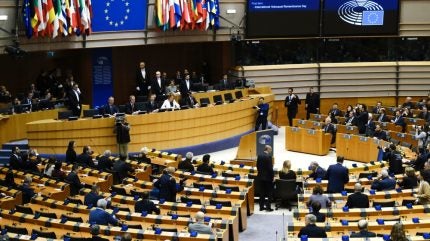
Under the new regulation, member state authorities and the European Commission will possess the authority to launch investigations into suspected instances of forced labour within supply chains.
The European Parliament confirmed that investigations into suspected cases of forced labour will be grounded in factual and verifiable information obtained from a range of sources, including international organisations, cooperating authorities, and whistle-blowers.
The regulation extends its reach to online sales, with shipments intercepted at the EU’s borders to prevent the circulation of goods produced through exploitative labour practices.
Various risk factors and criteria, such as the prevalence of state-imposed forced labour in specific economic sectors and geographic regions, will inform the decision-making process.
What happens if you are found using forced labour?
If evidence confirms the use of forced labour, affected products will be removed from the EU single market.
Manufacturers of banned goods will have the option of donating, recycling, or destroying the goods and non-compliant companies risk facing fines.

US Tariffs are shifting - will you react or anticipate?
Don’t let policy changes catch you off guard. Stay proactive with real-time data and expert analysis.
By GlobalDataHowever, avenues for redemption remain open as banned goods may be readmitted to the market once the company demonstrates the elimination of forced labour from its supply chains.
Rapporteur for the International Trade Committee Samira Rafaela commented: “We have adopted a ground-breaking piece of legislation to combat forced labour worldwide. This regulation fosters EU and international cooperation, shifts power from exploiters to consumers and employees, and offers possibilities for remedies for victims. It also transforms trade policies into a greener and fairer future.”
Rapporteur for the Internal Market Maria-Manuel Leitão-Marques explained globally 28 million people are trapped in the hands of human traffickers and forced to work for little or no pay.
She said: “Europe cannot export its values while importing products made with forced labour. The fact that the EU finally has a law to ban these products is one of the biggest achievements of this mandate and a victory for progressive forces.”
Next steps to EU forced labour ban
The regulation, adopted with a majority of 555 votes in favour, six against, and 45 abstentions, now awaits final formal approval from the EU Council before publication in the Official Journal. Once published, EU member states will be required to implement the regulation in three years’ time, signalling a concerted effort to ensure the ethical integrity of the EU single market and promote responsible global trade practices.



